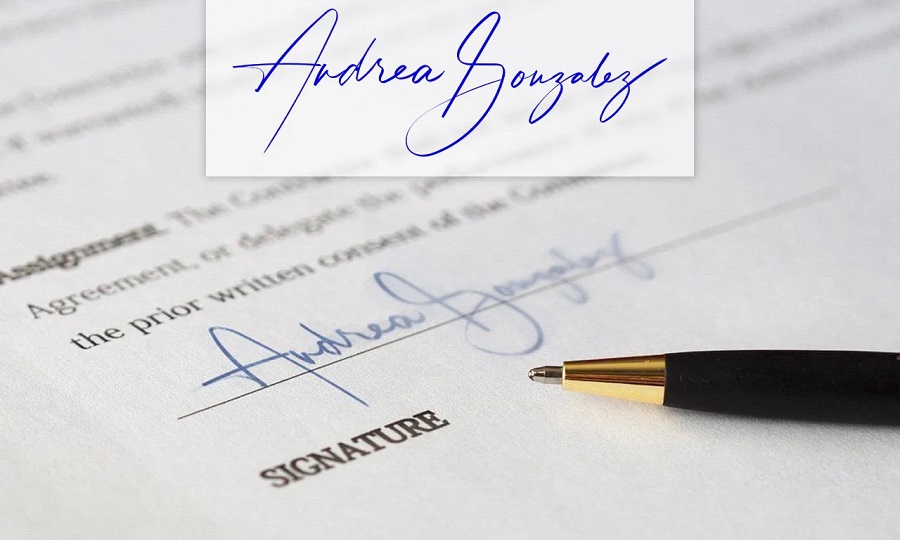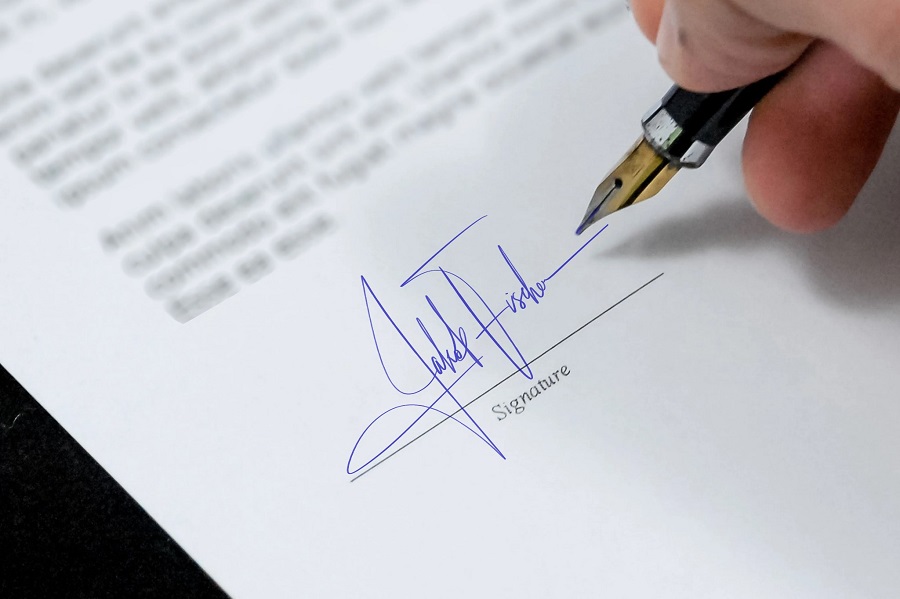9 things to know about signature authentication
What is signature authentication? Signature authentication is a simple administrative procedure but is becoming increasingly popular and plays an important role in civil and economic transactions. This article from S4B Vietnam will provide readers with basic information about signature authentication, helping you better understand the procedures and regulations of signature authentication.
1. What is signature authentication?
a. Concept
According to the provisions of Article 2 of Decree No. 23/2015/ND-CP, signature authentication is an activity of a competent agency or organization according to the provisions of this Decree, to confirm that the signature on the document is valid. The document or document is created by the person requesting authentication.
b. Legal value of signature authentication
According to the provisions of Article 3 of Decree No. 23/2015/ND-CP, signature authentication has the following legal value:
A signature authenticated according to the provisions of this Decree is valid as evidence that the person requesting authentication has signed that signature, and is the basis for determining the responsibility of the signer for the content of the document.
What Are Digital Signatures And How Do They Work
2. Regulations on signature authentication
a. Responsibilities of the person requesting signature authentication and the person performing signature authentication
The person requesting signature authentication must be responsible for the content of the papers and documents they sign to request signature authentication. They are not required to authenticate signatures in papers and documents with content as specified in Clause 4, Article 22 and Clause 4, Article 25 of Decree 23/2015/ND-CP.
b. Cases where signatures cannot be authenticated
According to the provisions of Article 25 of Decree No. 23/2015/ND-CP, signatures cannot be authenticated in the following cases:
- The person requesting signature authentication is unaware and cannot control his or her behavior at the time of authentication.
- The person requesting signature authentication must present an ID card or passport that is no longer valid or is fake.
- Papers and documents signed by the authentication requester contain prohibited content as specified in Clause 4, Article 22 of Decree 23/2015/ND-CP, including: violating the law, violating societal morality; against the revolution; distorting history; insulting the honor, dignity, reputation of other individuals or organizations; inciting war, and similar content.
- Papers and documents containing a contract or transaction, except in the case of a power of attorney without remuneration or related to the transfer of property ownership or use rights of real estate, as specified in Point d Clause 4 Article 24 of Decree 23/2015/ND-CP.
c. Where to authenticate signatures? Who has the authority to authenticate signatures?
According to the provisions of Article 5 of Decree No. 23/2015/ND-CP, agencies competent to authenticate signatures include:
- The Justice Department of districts, towns, and provincial cities has the authority to authenticate signatures in papers and documents, as well as signatures of translators in papers and documents from foreign languages into Vietnamese or from Vietnamese to a foreign language.
- The Commune-level People’s Committee, with the person with authentication authority being the Chairman or Vice Chairman of the Commune-level People’s Committee
- Diplomatic missions, consular representative agencies, as well as other agencies authorized to perform consular functions of Vietnam abroad
- Notaries of notary practice organizations, including notary offices or notary offices, have the authority to authenticate signatures in papers and documents.
d. Signature authentication fee
According to Decision 1024/QD-BTP effective from May 9, 2018, the authentication and signature authentication fees are applied as follows:
- At the Justice Department and Commune People’s Committee: 10,000 VND/case.
- At representative agencies: 10 USD/copy.
- At the Notary Practice Organization:
- Fee for authenticating signatures in documents and papers: 10,000 VND/case.
Signature Verification: What Is It?
e. How long does it take to authenticate a signature?
According to Article 7 of Decree No. 23/2015/ND-CP and guidance from Section 3 of Official Dispatch 1352/HTTQTCT-CT, signature authentication time is specified as follows:
- The time limit for implementing the authentication request must be guaranteed on the day the agency or organization receives the request, or the next working day if the request is received after 3:00 p.m.
- For specific cases specified in Articles 21, 33 and 37 of Decree 23/2015/ND-CP, the deadline may be extended.
- When receiving a request for signature authentication, the receiving agency must make an appointment, clearly stating the date and time when the results will be returned to the person requesting authentication.
Signature authentication is an important procedure that helps protect the legal rights of parties participating in transactions, ensures the legality and rigor of documents and limits disputes and risks in transactions. Hopefully this article has provided readers with useful information about signature authentication. Customers who need consultation on digital signatures and accounting service please register here:
>>>Read more: The basic difference between tax examination and tax inspection
S4B Vietnam
- Address: Unit 701B-701C, Tower A, Handi Resco, 521 Kim Ma Street, Ba Dinh District, Hanoi, Vietnam
- Tel: + 84 24 3974 4181
- Email: service@s4b.com.vn
——————————————–
We Will Show You The Way To Success!


